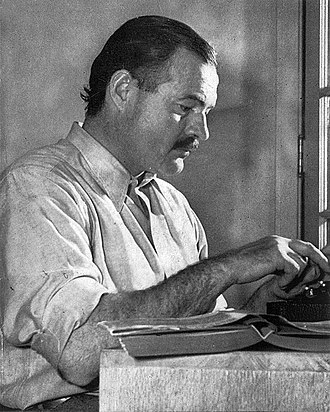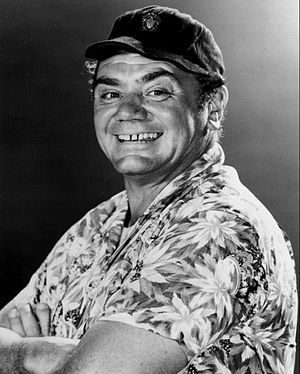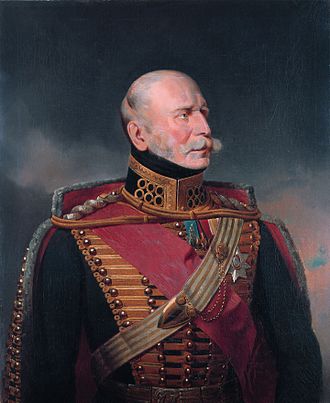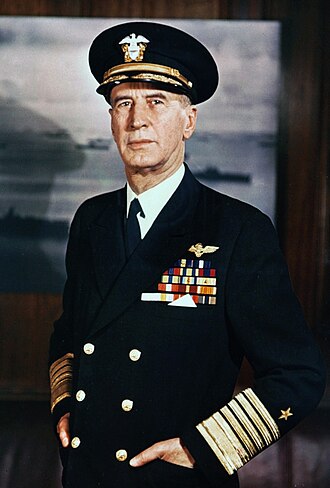Discover Your Roots
SIGN UPDiscover Your Roots
SIGN UPErnest is a male given name of English origin, derived from the Germanic word "ernst," meaning "serious" and often shortened to Ernie. The name signifies earnestness and sincerity, reflecting a strong and serious character. Notable individuals bearing this name include historical figures such as Archduke Ernest of Austria and literary icons like Ernest Hemingway. Additionally, Ernest has also been featured in popular culture as fictional characters in various works, such as Ernest T. Bass in The Andy Griffith Show and Ernest Worthing in The Importance of Being Earnest by Oscar Wilde. This timeless name carries a sense of steadfastness and integrity, making it a popular choice for parents seeking a name that embodies sincerity and seriousness.

Ernest Miller Hemingway, born on July 21, 1899, in Oak Park, Illinois, was an influential American novelist, short-story writer, and journalist. His writing style, characterized by its minimalism and directness, greatly impacted 20th-century literature. Hemingway's adventurous lifestyle and unapologetically candid public persona have contributed to his enduring romanticized image.His literary legacy includes seven novels, six short-story collections, and two non-fiction works, many of which have attained the status of American classics. Notably, Hemingway was honored with the Nobel Prize in Literature in 1954. His experiences as an ambulance driver during World War I substantially influenced his early works.After the war, Hemingway moved to Paris, where he was influenced by the modernist writers and artists of the "Lost Generation" expatriate community. He published his debut novel, "The Sun Also Rises," in 1926, and later produced acclaimed works like "A Farewell to Arms" and "For Whom the Bell Tolls." Hemingway's reputation as a literary icon was further solidified with the Pulitzer Prize-winning novel "The Old Man and the Sea" in 1952.Tragically, Hemingway's later years were marked by physical suffering due to injuries sustained in two plane crashes during a 1954 African trip. This period of persistent pain and declining health culminated in his untimely suicide at his

Ernest Borgnine, born Ermes Effron Borgnino on January 24, 1917, in Hamden, Connecticut, was an American actor renowned for his distinctive voice and gap-toothed grin. His career spanned over six decades, during which he achieved success in film, television, and theater. Borgnine's filmography includes notable roles in "From Here to Eternity," "Bad Day at Black Rock," and "Marty," for which he won the Academy Award for Best Actor. He also starred in the sitcom "McHale's Navy" and the action series "Airwolf." Beyond his acting prowess, Borgnine served in the United States Navy during World War II, earning several military honors, and was recognized with the Lone Sailor Award and the title of chief petty officer for his support of naval personnel. His journey into acting began after the war, when he heeded his mother's encouragement to pursue a career in the performing arts, ultimately finding success on stage and screen. Ernest Borgnine's impact on the entertainment industry and his military service have left an enduring legacy.

Ernest Augustus, also known as Ernst August, was the King of Hanover from 1837 until his passing in 1851. Born in London in 1771 as the fifth son of King George III and Queen Charlotte, he was initially unlikely to ascend to the throne, but circumstances led him to become the monarch of Hanover. Ernest received his education and military training in Hanover after being sent there by his father in his adolescence. Throughout his life, he faced various challenges and controversies, including allegations of murder and scandalous rumors about his personal life. Despite these, he had a generally successful reign and was an active member of the House of Lords with conservative views. His reign saw the voiding of a liberal constitution, the dismissal of prominent figures, and the suppression of a revolution. He also reluctantly led Hanover to join the German customs union. Ernest passed away in 1851 and was succeeded by his son, George V. His life was marked by a mix of personal and political challenges, making him a significant figure in the history of Hanover.

Ernest Lou Medina (August 27, 1936 – May 8, 2018) was a prominent figure in the United States Army, notably serving during the Vietnam War. Born into a Mexican-American family in Springer, New Mexico, Medina's military career began at a young age when he enlisted in the Colorado Army National Guard at 16, and later joined the Regular Army in 1956. Medina's leadership and service were recognized with the Silver Star and Bronze Star Medal, and he was promoted to captain in 1966, commanding Charlie Company in Hawaii before its deployment to Vietnam.Medina's involvement in the My Lai massacre of 1968 led to a court-martial in 1971, where he faced allegations of planning, ordering, and supervising the unlawful operation against inhabited hamlets in Son My village. Despite being acquitted of all charges, the negative publicity brought an end to his military career. Post-military life saw Medina working at an Enstrom Helicopter Corporation plant and later in his family's real estate business in Marinette, Wisconsin.Medina's legacy has been referenced in cultural works, including Pete Seeger's Vietnam protest song "Last Train to Nuremberg." Ernest Lou Medina passed away on May 8, 2018, at the age of 81, leaving behind a controversial and impactful military history.

Ernest Joseph King, born on November 23, 1878, was a distinguished fleet admiral in the United States Navy, renowned for his pivotal role as Commander in Chief, United States Fleet (COMINCH) and Chief of Naval Operations (CNO) during World War II. Appointed by President Franklin Delano Roosevelt, King held supreme naval command, steering American strategy and commanding the United States Navy's operations, planning, and administration. Graduating fourth in his class at the United States Naval Academy, King's illustrious career saw him assume various roles, from commanding submarines and aircraft carriers to heading the Naval Postgraduate School. Notably, his leadership extended to directing global offensive submarine efforts and establishing the "numbered fleet" organizations, underscoring his profound impact on naval strategy. King's expert advocacy for maritime offensive in Asia and his paramount representation of the U.S. Navy at Allied World War II conferences cemented his legacy as a visionary naval leader. His early life in Lorain, Ohio, and formative years at the Naval Academy shaped his unwavering dedication to maritime policy and strategic prowess. Ernest Joseph King's enduring influence on global naval strategy continues to inspire and inform military leaders to this day.
All images displayed on this page are sourced from Wikipedia or Wikimedia Commons.We use these images under their respective Creative Commons or public domain licenses. Wherever applicable, author attributions and license information are provided. If you believe an image is used incorrectly or outside its license terms, please contact us so that we can review and correct the issue.